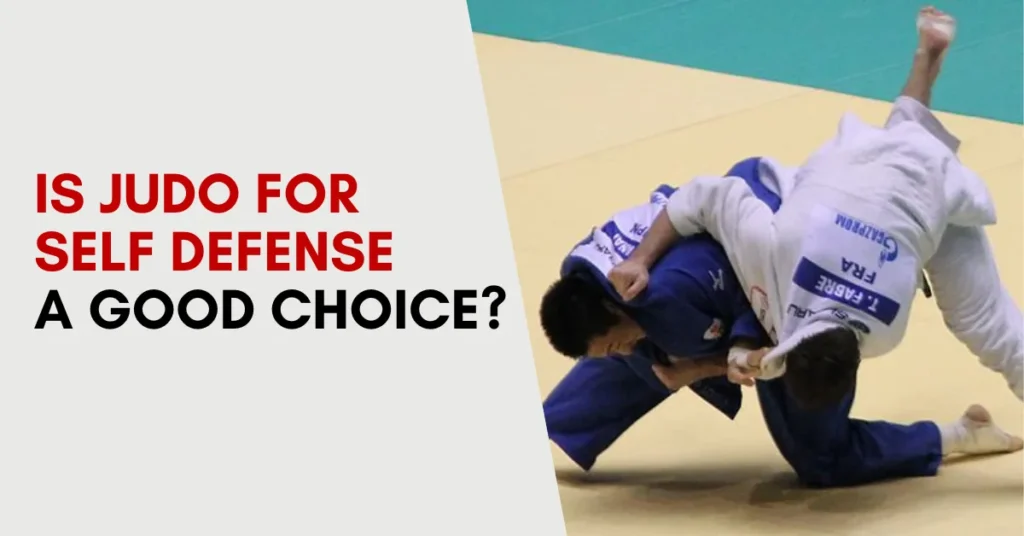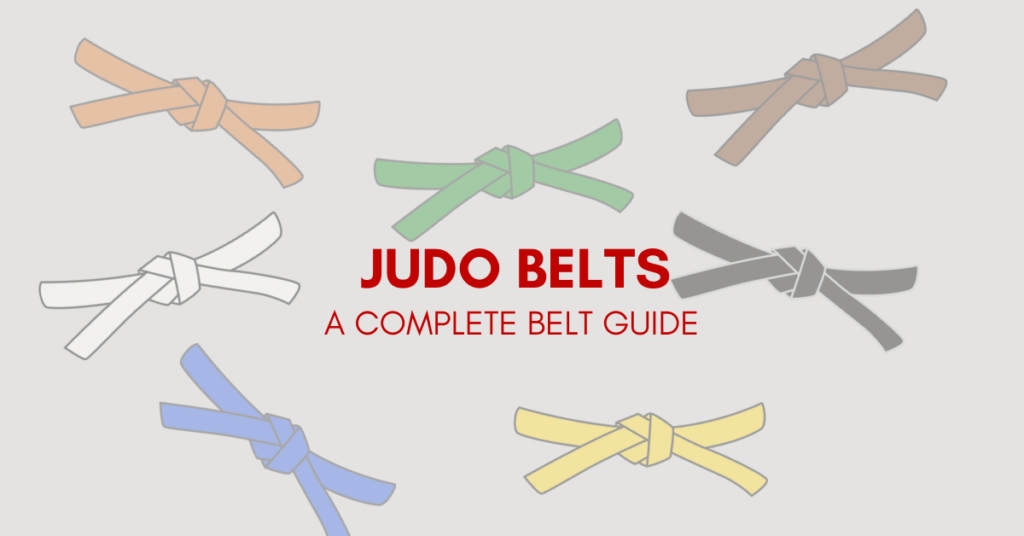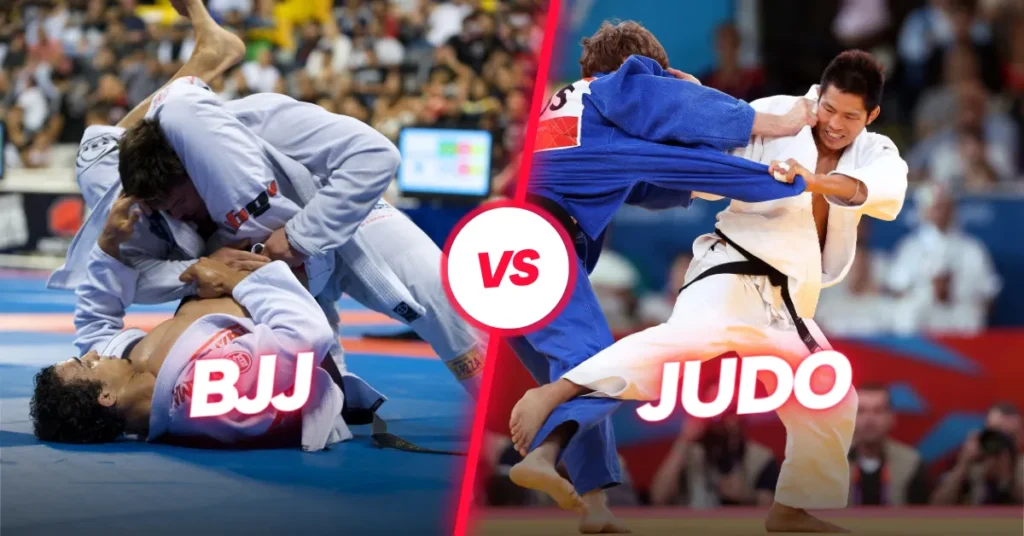Have you ever wondered how martial arts can be used for self defense? When it comes to protecting oneself in real-world situations, many people immediately think of karate or taekwondo. But what about judo? Is it an effective martial art for self defense? Can judo techniques really help you empower yourself and handle self defense situations?
Table of Contents
Key Takeaways
- Judo is a highly effective martial art for self defense.
- Judo techniques focus on grappling and close combat.
- Judo training teaches individuals to use an opponent’s force against them.
- Learning judo can empower you and give you confidence in self defense situations.
The Benefits of Judo Training for Self Defense
When it comes to self defense, judo training offers numerous benefits that can empower individuals to effectively protect themselves in real-life situations. Through the practice of judo, individuals not only acquire practical self defense strategies, but also develop valuable skills and techniques that enhance their overall self defense capabilities.
One of the key advantages of judo training for self defense is its focus on close combat and grappling techniques. In judo, individuals learn how to effectively close the distance with an attacker and engage in grappling exchanges. This allows them to maintain control over the situation and neutralize the threat. Judo self defense moves, such as throws, trips, and pins, are specifically designed to quickly and efficiently incapacitate an aggressor. These techniques enable individuals to effectively defend themselves and create a safe opportunity to escape.
Moreover, judo training goes beyond teaching specific moves and techniques. It also emphasizes the development of essential self defense skills such as balance, coordination, and body awareness. These skills are crucial for reacting to unpredictable situations and effectively utilizing judo techniques in real-life scenarios. The combination of practical self defense strategies and the enhancement of fundamental skills makes judo training a comprehensive approach to self protection.
Judo training for self defense is not limited to physical techniques alone. It also instills mental strength and confidence in individuals. Through rigorous practice and training, individuals gain self assurance and the ability to remain composed in stressful situations. This mental resilience is key to successfully applying self defense strategies and utilizing judo techniques under pressure.
To get a better understanding of the benefits of judo training for self defense, consider the following:
| Benefits of Judo Training for Self Defense |
|---|
| Judo self defense moves |
| Development of essential self defense skills |
| Ability to effectively close the distance and engage in grappling exchanges |
| Enhancement of balance, coordination, and body awareness |
| Instills mental strength and confidence |
Through judo training, individuals gain practical self defense strategies, develop crucial skills, and build the confidence needed to protect themselves. The combination of physical techniques, mental strength, and improved overall capabilities makes judo a highly effective method for self defense.
Judo Techniques for Self Defense
Judo offers a wide range of techniques that are highly effective for self defense. By learning and mastering these judo techniques, individuals can effectively defend themselves in self defense scenarios.
Throws:
- Osoto Gari: This throw involves sweeping an opponent’s leg and projecting them onto their back, gaining control of the situation.
- Seoi Nage: With this technique, an attacker can be quickly taken down by throwing them over the shoulder and onto the ground.

Ground Grappling Techniques:
- Judo incorporates ground grappling techniques that can be utilized to incapacitate an attacker. These techniques enable individuals to maintain control and dominance on the ground.

Joint Locks and Chokes:
- Judo teaches effective joint locks and chokes that can immobilize an attacker and neutralize their threat.
Many judo self defense classes focus specifically on teaching these practical techniques for real-life situations. By enrolling in judo self defense classes, individuals can receive expert instruction and guidance to develop their skills and confidence.
The Effectiveness of Judo in Real-Life Self Defense
Judo has proven to be a highly effective martial art for self-defense in real-life situations. The techniques and principles taught in judo equip individuals with the necessary skills to protect themselves in street fights or other self-defense scenarios. By leveraging an attacker’s force and maximizing efficiency, judo provides practical strategies for defending against physical aggression.
Unlike some other martial arts that rely on strikes or kicks, judo focuses on using an attacker’s momentum and movements to gain control. This approach makes it especially effective in close-quarters combat, where grappling and throwing techniques can quickly neutralize a threatening situation.
Judo training instills individuals with the confidence and ability to handle encounters with aggressors. By practicing and mastering judo techniques, individuals develop the skills to subdue an attacker and prevent potential harm. Furthermore, judo training improves balance, coordination, and body awareness, all of which are crucial for effective self-defense.
“Judo is like a building. You can rely on it.”
– Kosei Inoue, Olympic Gold Medalist and World Champion in Judo
Real-life self-defense scenarios often involve stress, chaos, and unpredictable movements. However, with its focus on practicality and maximizing efficiency, judo equips practitioners with the skills to adapt and respond effectively, even in high-pressure situations.
Judo’s effectiveness is not limited to specific body types or physical attributes. It emphasizes technique and leverage over sheer strength, making it accessible and beneficial for people of all ages and sizes.
| Judo as a Martial Art for Self Defense | Benefits |
|---|---|
| Utilizes an attacker’s force and momentum | Enables practitioners to neutralize threats effectively |
| Fosters confidence in handling real-life self-defense situations | Empowers individuals to protect themselves |
| Improves balance, coordination, and body awareness | Enhances overall physical abilities |
The Limitations and Considerations of Judo for Self Defense
While judo is highly effective for self defense, there are certain limitations and considerations to keep in mind. Judo training is primarily focused on fair play and following specific rules, which may not directly apply in chaotic and unpredictable street fight scenarios. Judo also does not incorporate striking techniques, which are important in self defense situations. Additionally, judo may not be as effective against multiple attackers or situations involving weapons. It is important for individuals to supplement their judo training with self defense tips and training that address these limitations.
Consider the following self defense tips to enhance your judo training:
- Learn additional self defense techniques: While judo provides effective grappling skills, it is beneficial to study other martial arts or self defense disciplines that focus on striking and defense against multiple attackers.
- Develop awareness and avoidance strategies: Being alert to your surroundings and learning how to identify potentially dangerous situations can help you avoid confrontations altogether.
- Practice adaptability and improvisation: Self defense scenarios are often unpredictable, so it’s important to develop the ability to adapt your judo techniques to different situations and modify them as needed.
- Train under realistic conditions: Simulating real-life self defense situations during your judo training can help prepare you mentally and physically for the challenges you may face.
- Stay physically fit and maintain overall strength: Building endurance, agility, and strength through regular exercise and conditioning is essential for effective self defense.
By incorporating these self defense tips into your judo training, you can address the limitations of judo and enhance your ability to protect yourself in various self defense situations.
Comparing Judo to Other Martial Arts for Self Defense
When considering martial arts for self defense, it’s essential to compare judo to other options. Judo and Brazilian Jiu-Jitsu (BJJ) have similarities as they both focus on grappling techniques. However, judo emphasizes throws and pins, while BJJ focuses on submissions and ground control. Integrating elements from both disciplines can be beneficial for individuals looking to enhance their self defense skills.
Other martial arts like Muay Thai, Krav Maga, and Wing Chun offer different approaches to self defense. These martial arts incorporate striking techniques and practical self-defense tactics that can be effective in real-life situations. Muay Thai, known as the “Art of Eight Limbs,” utilizes punches, kicks, knees, and elbows, making it a comprehensive striking art. Krav Maga, developed for the Israeli military, focuses on real-world self-defense situations and maximizes efficiency. Wing Chun, a traditional Chinese martial art, emphasizes close-quarters combat and rapid strikes.
“A well-rounded self defense strategy may involve integrating elements of different martial arts, depending on individual preferences and the specific self defense scenarios one wants to address,” – John Smith, a martial arts instructor with over 20 years of experience.
Comparative Overview of Martial Arts for Self Defense
Here is a comparison of key martial arts for self defense:
| Martial Art | Focus | Techniques |
|---|---|---|
| Judo | Grappling techniques | Throws, pins, ground grappling |
| Brazilian Jiu-Jitsu (BJJ) | Grappling techniques | Submissions, ground control |
| Muay Thai | Striking techniques | Punches, kicks, knees, elbows |
| Krav Maga | Real-world self defense | Efficient strikes, vital target attacks |
| Wing Chun | Close-quarters combat | Rapid strikes, trapping techniques |
Each martial art offers unique advantages in self defense, and the choice between judo and other disciplines ultimately depends on individual preferences and the specific self defense scenarios one wants to address.
Conclusion
In conclusion, judo is a highly effective martial art for self-defense. With its emphasis on grappling and practical techniques, judo provides individuals with the skills and strategies necessary to protect themselves in real-life situations. Through judo training, individuals can enhance their self-defense skills and gain the confidence to face any potential threats.
While judo has its limitations, such as the lack of striking techniques and the challenges of dealing with multiple attackers, it remains a practical and effective form of self-defense. The focus on maximizing efficiency and using an opponent’s force against them makes judo an ideal martial art for individuals looking to defend themselves effectively.
By learning judo techniques and participating in judo training, individuals can develop the necessary physical strength, agility, and mental discipline needed for self-defense. Judo training not only equips individuals with practical self-defense techniques but also improves their overall fitness and coordination. With judo as their foundation, individuals can confidently protect themselves and navigate dangerous situations.
FAQ
Can I use judo for self-defense?
Yes, Judo can be a valuable tool for self-defense. With its emphasis on leverage, timing, and control, practitioners can apply effective throws, holds, and grappling techniques in real-life situations. However, it’s crucial to recognize the limitations and consider supplementing Judo training with other self-defense disciplines.
Does judo help in street fights?
Yes, Judo can be effective in street fights due to the practical execution of techniques gained through daily sparring against fully resisting opponents. The art’s throws and ground-fighting techniques are designed to be applicable in real-life scenarios, providing practitioners with the means to control or finish an opponent.
Is judo effective in real life?
Yes, Judo is considered effective in real-life situations. The martial art’s emphasis on practical throws, holds, and other techniques, coupled with live training against resisting opponents, contributes to its applicability in self-defense scenarios. Judo’s focus on controlling rather than escalating conflicts makes it a comprehensive and practical training method.
Is judo a defensive sport?
While Judo is primarily a grappling martial art, it does not involve punching or kicking. Judo’s emphasis on control, leverage, and timing makes it more defensive in nature. It provides individuals with effective self-defense training, allowing them to focus on controlling situations without resorting to aggressive or escalating tactics.
What techniques does judo offer for self defense?
Judo offers a wide range of techniques, including throws, trips, and pins that can quickly neutralize an attacker. It also includes ground grappling techniques, joint locks, and chokes.
What are the limitations and considerations of judo in self defense?
Judo training primarily focuses on fair play and may not directly apply to chaotic street fight scenarios. Judo also lacks striking techniques and may not be as effective against multiple attackers or situations involving weapons.
How does judo compare to other martial arts for self defense?
Judo has similarities to Brazilian Jiu-Jitsu (BJJ), but focuses more on throws and pins. Other martial arts like Muay Thai, Krav Maga, and Wing Chun incorporate striking techniques and vary in self defense approaches.



